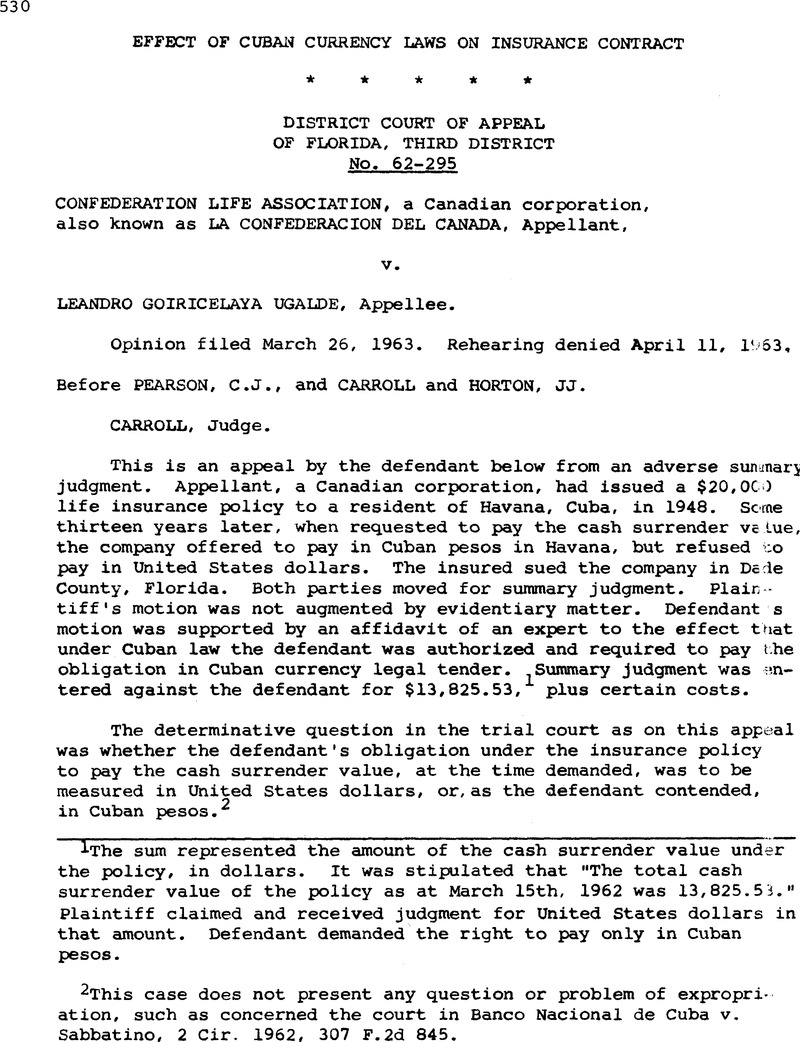No CrossRef data available.
Published online by Cambridge University Press: 04 April 2017

1 The sum represented the amount of the cash surrender value under the policy, in dollars. It was stipulated that “The total cash surrender value of the policy as at March 15th, 1962 was 13,825.5 3.” Plaintiff claimed and received judgment for United States dollars in that amount. Defendant demanded the right to pay only in Cuban pesos.
2 This case does not present any question or problem of expropriation, such as concerned the court in Banco Nacional de Cuba v. Sabbatino, 2 Cir. 1962, 307 F.2d 845.
3 The policy provided that it became effective upon delivery and payment of the first premium. The first premium was paid in Cuba. That fixed Cuba as the place of the making of the contract. See Equitable Life Assur. Soc. of the United States of America v. McRee, 75 Fla. 257, 78 So. 22; Columbian National Life Insurance Co. v. Lanigan, 154 Fla. 760, 19 So.2d 67.
4 The policy expressly provided that payments thereunder were to be made in Havana, Cuba.
5 There is authority that does not regard as conclusive the place of making or performance but rather lays emphasis upon the law of the place that has the most significant contacts with the matter in dispute. See Auten v. Auten, 308 N.Y. 155, 124 N.E.2d. 99 (1954).
6 Furthermore, appellee was a citizen of Cuba who had made a contract in that country for performance there. “It cannot be against the public policy of this state to hold nationals to the contracts which they have made in their own country to be performed there according to the laws of that country.” Dougherty v. The Equitable Life Assur. Soc. of the United States of America, 266 N.Y. 71, 90, 193 N.E. 897 (1934). See also Holzer v. Deutche Reichbahn-Tesellschaft, 277 N.Y. 474, 14 N.E. 2d 798 (1938).